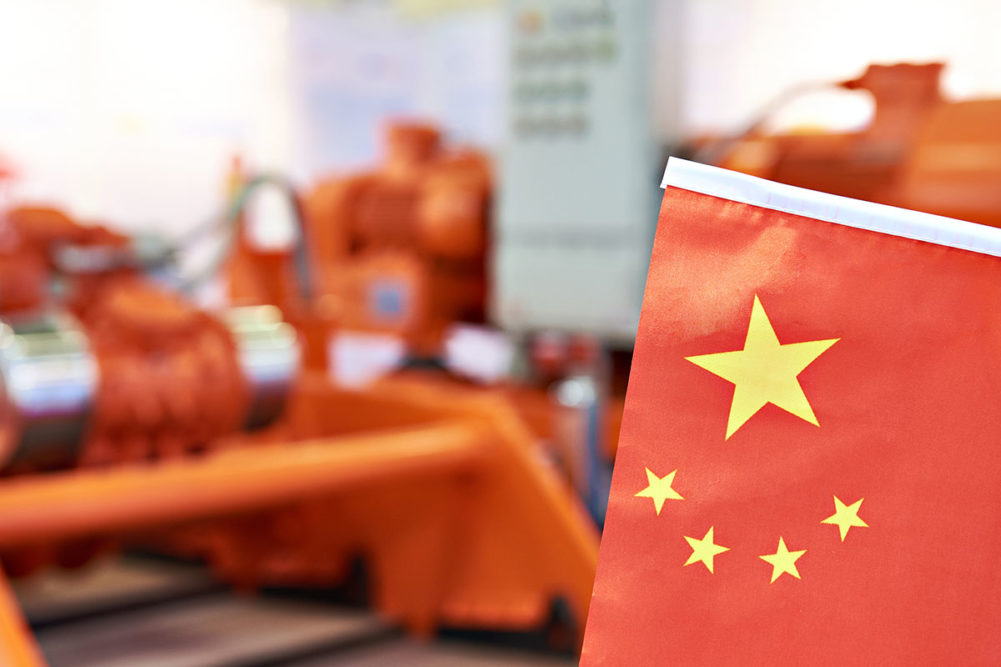BOCA RATON, Fla. — Companies doing business in China face near-term uncertainty as the coronavirus outbreak that has shuttered manufacturing plants and disrupted supply chains continues. Few CEOs speaking at the annual Consumer Analyst Group of New York conference could quantify the impact the outbreak will have on results, but many did confirm it will have an effect.
“We’ve seen a disruption of not only businesses that we operate in China, but also exports from the United States because the ports are basically backed up in China,” said Noel W. White, CEO of Tyson Foods Inc., Springdale, Arkansas, during the company’s Feb. 19 presentation.
The slowdown at China’s ports comes at a time when Tyson Foods sees significant opportunity to export beef, pork and chicken to the country.
“Tyson has seen a six-fold increase in its pork exports to China versus the same quarter previous year,” said Dean Banks, president of Tyson Foods. “And China is now the world’s largest importer of beef, and we’re getting a renewed interest in our chicken products. Despite some temporary challenges related to coronavirus, we see this interest enduring.”
General Mills Inc., Minneapolis, iterated its earnings guidance during its CAGNY presentation of a 1 percent to 2 percent increase in net sales compared to $16.86 billion the previous year and an adjusted earnings per share increase 3 percent to 5 percent from a base of $3.22 earned in fiscal 2019.
“This outlook does not include the impact from Covid-19, the coronavirus in China, since the rapidly evolving situation makes it difficult to quantify the full year impact of the outbreak at this time,” said Kofi A. Bruce, chief financial officer of General Mills, on Feb. 18.
Bruce said nearly half of General Mills’ company-owned Häagen-Dazs stores in greater China have been closed and the remaining shops are operating under restricted hours.
“For context, the Greater China region represents approximately 4 percent of the company’s total net sales, of which approximately 40 percent are net sales from Häagen-Dazs shops and other food service outlets,” Bruce said. “Important to note that the shops are retail store formats with high fixed cost bases, so a decline in shop sales has a more significant impact on profit relative to the Asia and Latin America segments’ overall profitability.”
Dirk Van de Put, chairman and CEO of Mondelez International, Deerfield, Illinois, said Feb. 18 his company’s four manufacturing plants in China have reopened, but they are not operating at full capacity
“Given the timing of the situation during Chinese New Year, we do believe there will be some impact on demand and margins of China,” he said. “However, barring a more dramatic impact that spills into global growth, at this stage, we feel our outlook is still the best guidance we can give you. We will continue to monitor the situation and keep you updated as appropriately.”
Regarding demand for Mondelez’s products in China, Van de Put said consumers have shifted to buying products online vs. in store.
“But we are suffering just like anybody else,” he said. “The e-commerce operators, just like anybody else, are suffering from a shortage of trucks and a shortage of drivers.”
James P. Zallie, president and CEO of Ingredion Inc., Westchester, Illinois, told MEAT+POULTRY sister publication Food Business News during the meeting that his company has two manufacturing plants in China, both approximately 850 km from Wuhan, ground zero for the outbreak. One of the plants has continued operations uninterrupted while the other has experienced disruption due to limited staffing.
“Covid-19 did not impact our business in the fourth quarter,” he said. “However, we are seeing signs in the first quarter based on mandatory quarantines and the availability of labor to operate our plants.
“The concern for us, or the watch out for us, and it hasn’t impacted us yet, is the ingredients we have to source, whether they are chemicals or materials. The knock-on effects to the supply chain you are hearing about from so many companies is the watch out for us. We don’t have great visibility going forward, but we have ample inventory.”


